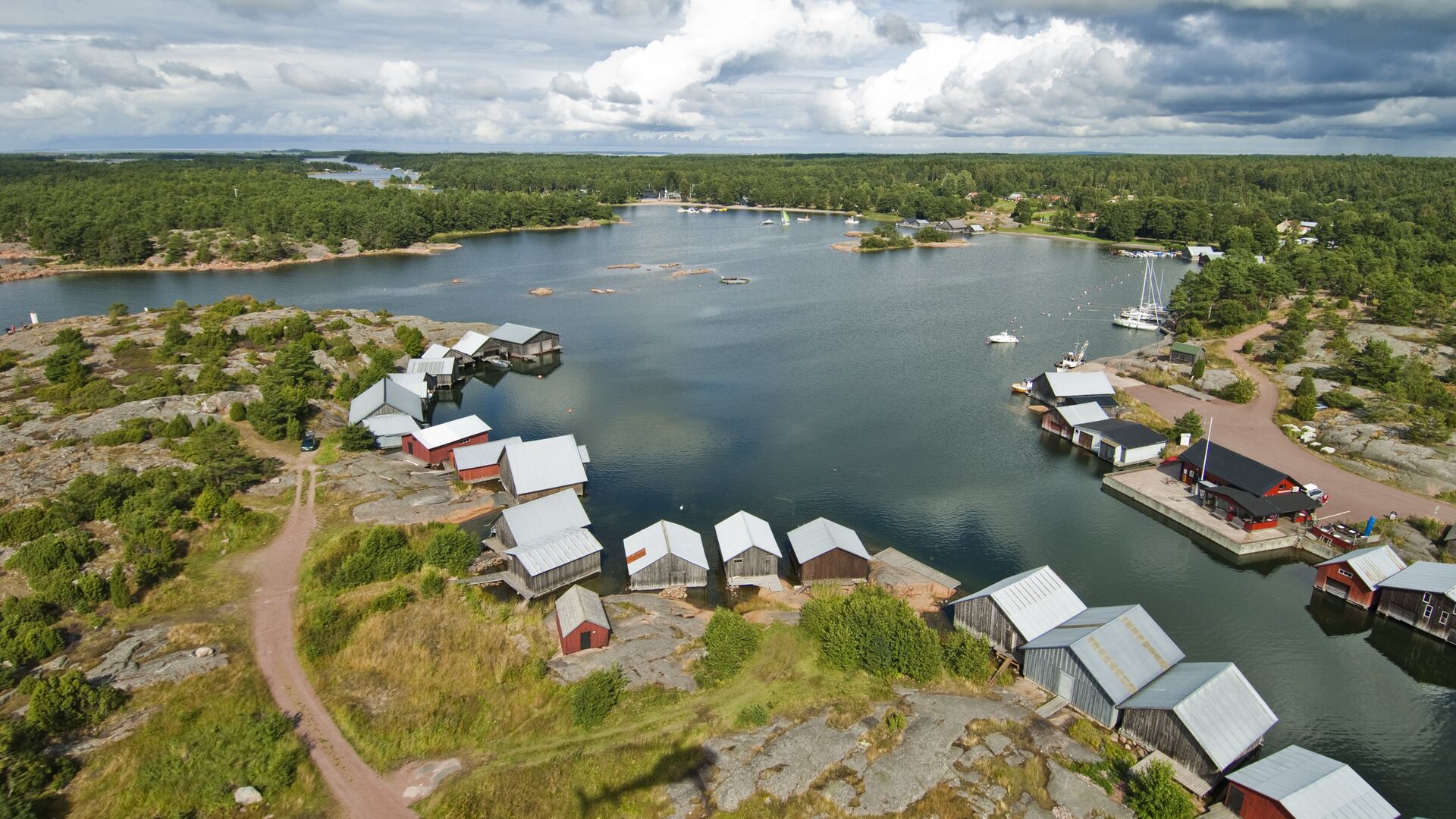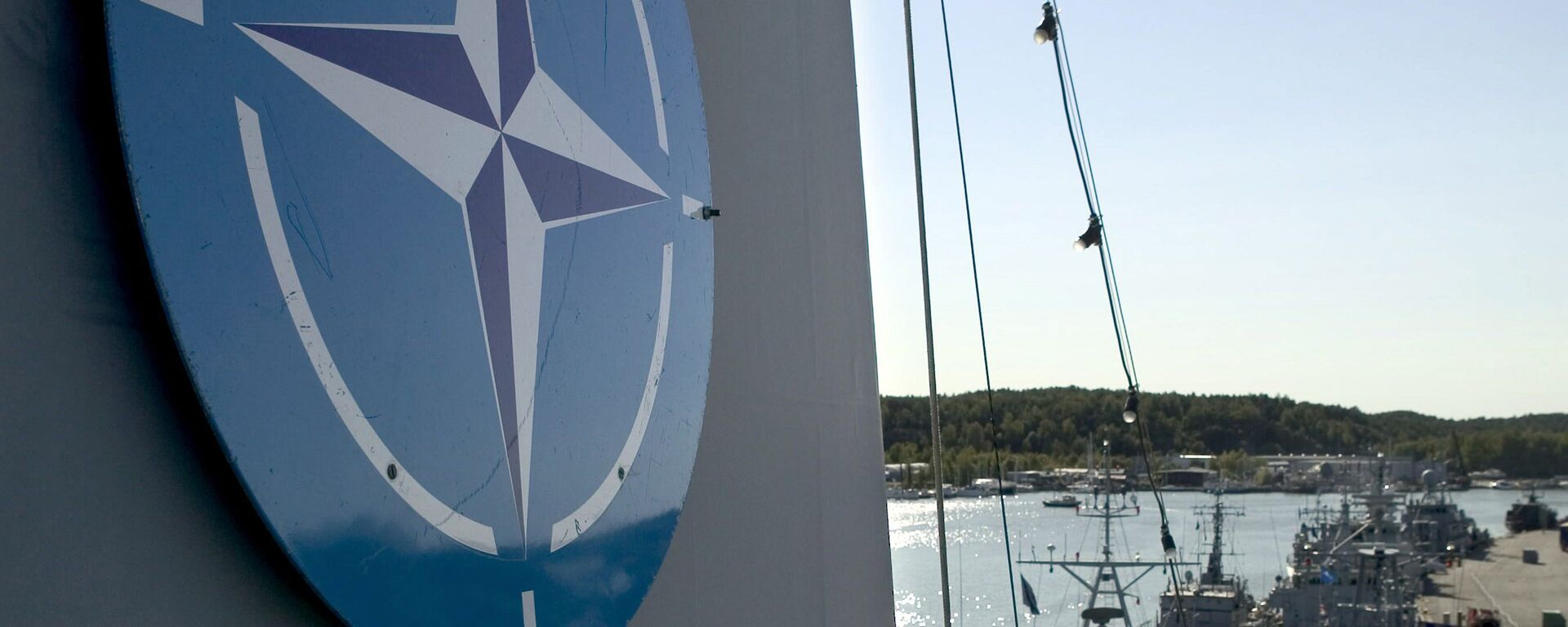https://sputnikglobe.com/20220427/debate-on-re-militarising-key-baltic-archipelago-underway-in-finland-1095090122.html
Debate on Re-Militarising Key Baltic Archipelago Underway in Finland
Debate on Re-Militarising Key Baltic Archipelago Underway in Finland
Sputnik International
The demilitarised status of the Åland Archipelago dates back to the Paris Agreement in the aftermath of the Crimean War in the mid-19th century and has since... 27.04.2022, Sputnik International
2022-04-27T07:33+0000
2022-04-27T07:33+0000
2022-04-27T07:33+0000
finland
scandinavia
aland islands
baltic sea
newsfeed
military & intelligence
https://cdn1.img.sputnikglobe.com/img/105780/75/1057807552_0:219:2863:1829_1920x0_80_0_0_af487925f741a8e5842646cdf226548c.jpg
The speaker of the Finnish parliament and former Prime Minister Matti Vanhanen has unleashed a debate on the demilitarised status of the autonomous Åland Archipelago, which is located halfway between Finland and Sweden.Matti Vanhanen said that Åland itself should take the initiative to place troops, with wording that Vanhanen himself subsequently toned down.However, Åland's Country Councilor Veronica Thörnroos reacted to Vanhanen's initial statement and said that it is not up to the Finnish authorities to discuss the deployment of troops on Åland unless the island itself takes the initiative.“As I understand it, the Speaker wants to maintain Åland's demilitarised status and neutrality. But the issue cannot be discussed unless Ålanders want changes regarding the archipelago's status and contact Helsinki”, Thörnroos told Yle.The Åland archipelago is, politically, an autonomous Swedish-speaking region of Finland. Only 80 of the thousands of islands are inhabited; they are home to a population of some 30,000.Åland had become demilitarised as a result of the peace negotiations in Paris in 1856 after the Crimean War. When its sovereignty issue was solved by the League of Nations in 1921, following a dispute between Sweden and Finland, the demilitarisation of 1856 was confirmed. Its status was confirmed once again in the 1947 Paris Peace Treaty following World War II.According to the valid agreements, Åland must be neutral and have no military forces, but in the event of a conflict abroad, Finland has the right and obligation to defend Åland and its neutrality in an appropriate manner.
https://sputnikglobe.com/20220423/finlands-foreign-minister-says-no-point-in-delaying-nato-membership-application-1094995045.html
finland
scandinavia
aland islands
baltic sea
Sputnik International
feedback@sputniknews.com
+74956456601
MIA „Rossiya Segodnya“
2022
News
en_EN
Sputnik International
feedback@sputniknews.com
+74956456601
MIA „Rossiya Segodnya“
Sputnik International
feedback@sputniknews.com
+74956456601
MIA „Rossiya Segodnya“
finland, scandinavia, aland islands, baltic sea, newsfeed, military & intelligence
finland, scandinavia, aland islands, baltic sea, newsfeed, military & intelligence
Debate on Re-Militarising Key Baltic Archipelago Underway in Finland
The demilitarised status of the Åland Archipelago dates back to the Paris Agreement in the aftermath of the Crimean War in the mid-19th century and has since been confirmed by other international treaties and firmly supported by the archipelago's authorities.
The speaker of the Finnish parliament and former Prime Minister Matti Vanhanen has unleashed a debate on the demilitarised status of the autonomous Åland Archipelago, which is located halfway between Finland and Sweden.
Matti Vanhanen said that Åland itself should take the initiative to place troops, with wording that Vanhanen himself subsequently toned down.
“I participated in an event in Lahti, and the question of troops on Åland was asked by the audience. While answering that question, I emphasised that Åland's demilitarisation is based on international agreements. In that context, I stated that it would be easier from a military point of view if we had stationary forces on Åland, but no such proposal is forthcoming. It is therefore Ålanders' own business to decide whether they want to start a process to change the status of the area,” he later explained to national broadcaster Yle.
However, Åland's Country Councilor Veronica Thörnroos reacted to Vanhanen's initial statement and said that it is not up to the Finnish authorities to discuss the deployment of troops on Åland unless the island itself takes the initiative.
“As I understand it, the Speaker wants to maintain Åland's demilitarised status and neutrality. But the issue cannot be discussed unless Ålanders want changes regarding the archipelago's status and contact Helsinki”, Thörnroos told Yle.
The Åland archipelago is, politically, an autonomous Swedish-speaking region of Finland. Only 80 of the thousands of islands are inhabited; they are home to a population of some 30,000.
Åland had become demilitarised as a result of the peace negotiations in Paris in 1856 after the Crimean War. When its sovereignty issue was solved by the League of Nations in 1921, following a dispute between Sweden and Finland, the demilitarisation of 1856 was confirmed. Its status was confirmed once again in the 1947 Paris Peace Treaty following World War II.
According to the valid agreements, Åland must be neutral and have
no military forces, but in the event of a conflict abroad, Finland has the right and obligation to defend Åland and its neutrality in an appropriate manner.


